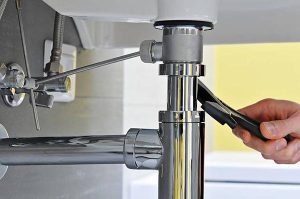
The Future of HVAC Technology: Insights from Contractors
The HVAC industry has seen significant advancements in technology over the past few years, and contractors are at the forefront of these changes. From smart thermostats to energy-efficient systems, contractors have a unique perspective on what the future holds for HVAC technology.
One of the biggest trends in HVAC technology is the rise of smart thermostats. These devices allow homeowners to control their heating and cooling systems remotely, adjusting temperatures from their smartphones or tablets. This not only provides convenience for homeowners but also helps them save money on energy bills by optimizing their HVAC usage.
Contractors have noted that smart thermostats are becoming increasingly popular among their customers, with many homeowners looking to upgrade to these more advanced systems. In addition to remote control capabilities, smart thermostats can also learn a homeowner’s preferences over time and adjust settings automatically for maximum comfort and efficiency.
Another trend that contractors are seeing in the hvac contractor near me industry is the move towards more energy-efficient systems. With rising concerns about climate change and sustainability, homeowners are increasingly looking for ways to reduce their carbon footprint and lower their energy costs. Contractors have responded by offering a range of energy-efficient options, such as high-efficiency furnaces and air conditioners, as well as geothermal heat pumps.
Geothermal heat pumps are particularly promising for the future of HVAC technology, as they use renewable energy from the ground to heat and cool homes. While these systems can be more expensive upfront than traditional HVAC systems, they offer long-term savings on energy costs and reduce reliance on fossil fuels.
Contractors also see potential for growth in ductless mini-split systems, which provide targeted heating and cooling without the need for ductwork. These systems are especially popular in older homes or buildings where installing ductwork may be impractical or cost-prohibitive. Ductless mini-splits offer flexibility in zoning rooms separately for personalized comfort levels while also being highly efficient in terms of energy usage.
Overall, contractors believe that the future of HVAC technology will continue to focus on improving efficiency, comfort, and sustainability. As new innovations emerge in areas such as artificial intelligence and automation, contractors will play a crucial role in helping homeowners navigate these changes and find solutions that best meet their needs.
In conclusion, contractors’ insights provide valuable perspectives on where HVAC technology is headed in the coming years. By staying informed about emerging trends and technologies within the industry, contractors can help ensure that homeowners have access to cutting-edge solutions that enhance comfort while reducing environmental impact. The future of HVAC technology looks bright indeed with continued innovation driving progress towards more efficient and sustainable heating and cooling solutions.
Detroit Heating and Cooling Co.
2917 Moon Lake Dr, West Bloomfield Township, Michigan, 48323
(248) 665-8111

